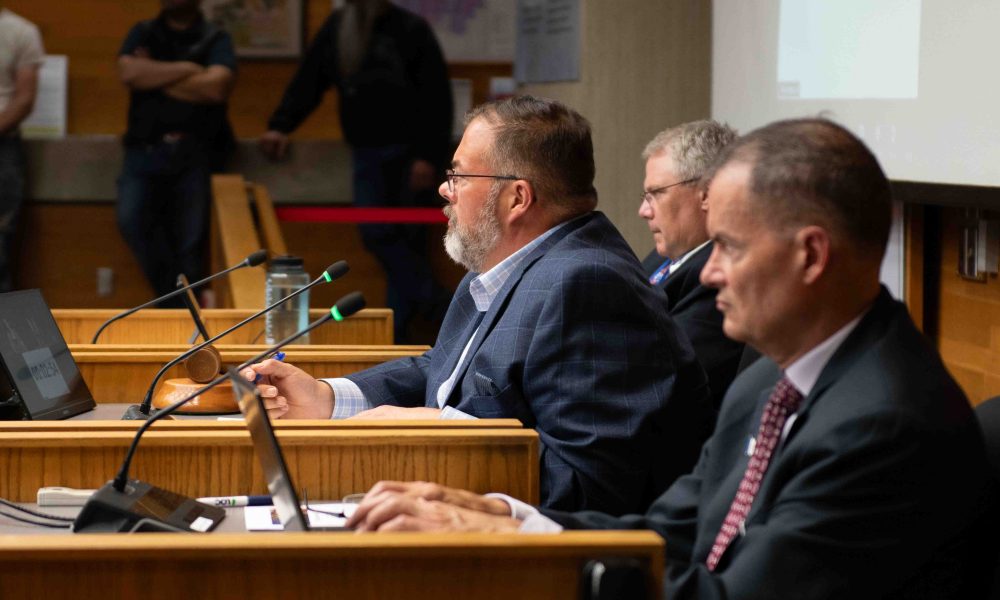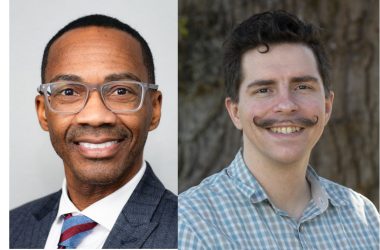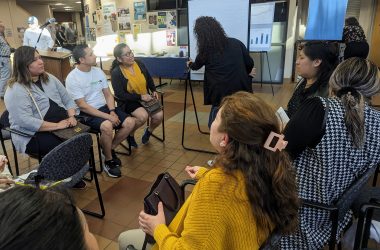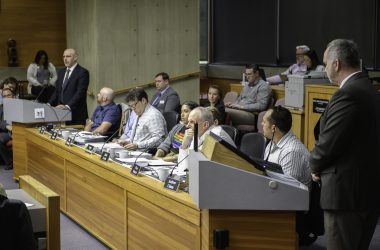The Salem City Council voted narrowly Monday night to tax the paychecks of Salem workers after listening to over two hours of public testimony overwhelmingly opposed to the proposal.
Councilors voted 5-4 to implement a tax that would have the average person who works in Salem pay about $500 per year to close a city budget deficit. The additional money would pay for existing police officers and firefighters and adding more of both and keep homeless sheltering services open after the federal and state money currently paying for them runs out next year.
The vote took place after 11 p.m., near the end of an at-times heated meeting where citizens spoke emotionally about the impact a new tax would have on their budgets, and councilors at times sniped at each other during deliberations.
“My earning power is decreasing rapidly. I’m very concerned that if this tax is passed I will not be able to afford housing,” said Margaret May, a Salem resident and state employee. She called approving the tax without sending it to voters “cowardly and shameful.”
A crowd filled the council chamber at the start of the 6 p.m. meeting but their numbers dwindled into the night as audience members looked on, at times snorting or applauding as councilors spoke about their intended votes.
Councilor Julie Hoy led an unsuccessful effort to refer the tax to voters at the next general election.
“The voice of the people should be heard with regard to this proposed, imposed payroll tax,” she said, drawing murmurs of agreement from the audience.
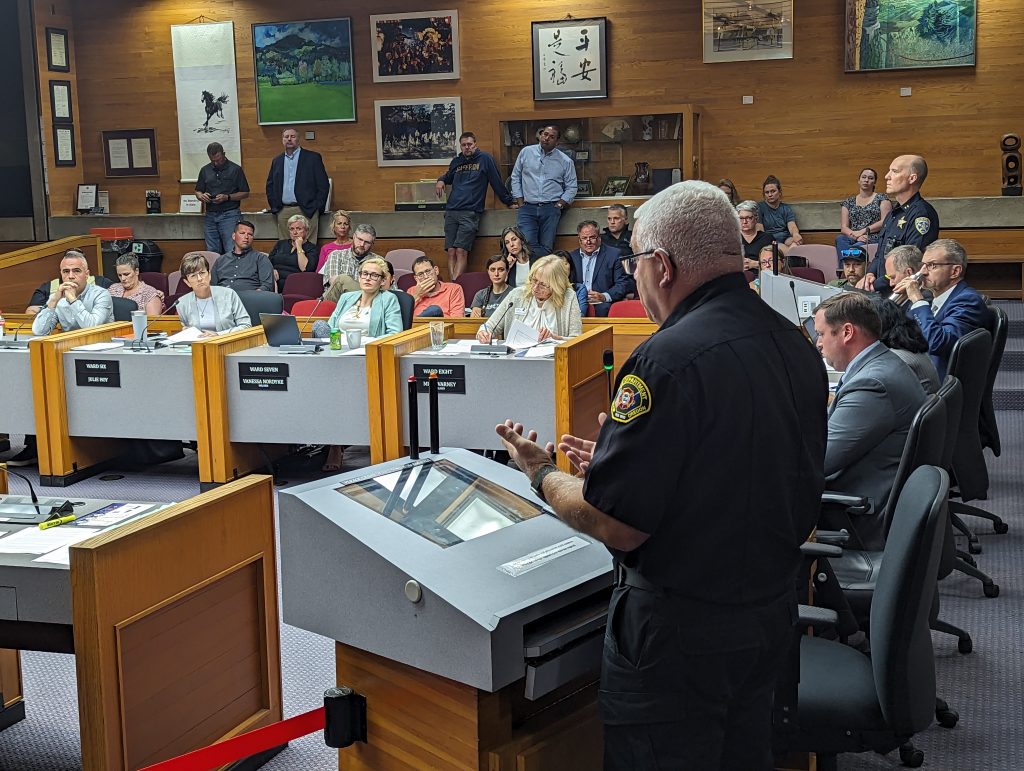
Mayor Chris Hoy (no relation to Julie Hoy), Council President Virginia Stapleton, and Councilors Linda Nishioka, Trevor Phillips and Micki Varney voted to impose the tax starting in July 2024.
Councilors Julie Hoy, Deanna Gwyn, Vanessa Nordyke and Jose Gonzalez first voted to send the tax to voters during the next general election. When that motion failed, the group voted against imposing the tax.
“It is really easy to be against something. What’s really challenging is being for something,” said Stapleton.
She said city officials for years have known the city needs more taxes to cover costs, and said her views on the issue were clear when she ran for council. She said she and other councilors don’t have the time or resources to lead a campaign to convince voters to approve the tax.
“I will not cut city services that many in our community rely on,” she said.
Nordyke said the council needed voter buy-in for a new tax.
“When we include the public, we gain trust and when we exclude the public, we lose trust,” she said.
Salem voters have a history of supporting asks from the city, including recent bond measures to build a new police station and retrofit the city library, and the approval of a $300 million infrastructure package last fall.
“This breach of trust is completely unnecessary and I have faith in our voters,” Nordyke said.
Workers would begin paying the tax in July 2024 at a rate of 0.814% of their wages. That’s about $42 per month for a Salem worker earning the city’s average wage of $29.90 an hour.
Minimum wage earners would be exempt. The tax applies to workers who physically work in Salem, regardless of where they live or where their company’s headquarters are located.
The tax is expected to bring in $27.9 million per year. Salem police would receive the largest share of money raised, about $10.5 million per year, followed by homeless services with about $7.9 million and $6.5 million for the fire department.
The council decision does send the tax to a public vote – no later than 2031, after seven years of tax collection.
People overwhelmingly opposed the tax
A diverse group of speakers and groups spoke or submitted written testimony, the vast majority opposed to councilors implementing the tax.
Councilors received over 130 written comments in opposition and 14 in support. About 50 people spoke at the council meeting, nearly all opposing the tax.

Many said they could not afford additional taxes, and those outside of Salem objected to the council imposing a tax on people who don’t live in the city and can’t vote for councilors. Some in that group said they were already nearing homelessness trying to pay bills and afford housing.
“I can tell you where I want to spend my money. It ain’t another tax. I got three kids,” said Jolene Koch, a Mollala resident working in Salem who teared up as she detailed the items she’s foregone for her family because she can’t afford them. “I’d like to put money in savings. I’d like to spend a little money on my health care that I need.”
Some objected specifically to the city’s plans to fund homeless services, saying the city was spending too much without seeing improvements.
Others said they understood the need for the tax, but that councilors should get voter buy-in.
“You all filed papers to run for election. That tells me you had confidence in the voters,” said Tim Murphy, CEO of Bridgeway Recovery Services, the region’s largest drug treatment provider. “Put the responsibility on those of us that support this idea to sell it to the community.”
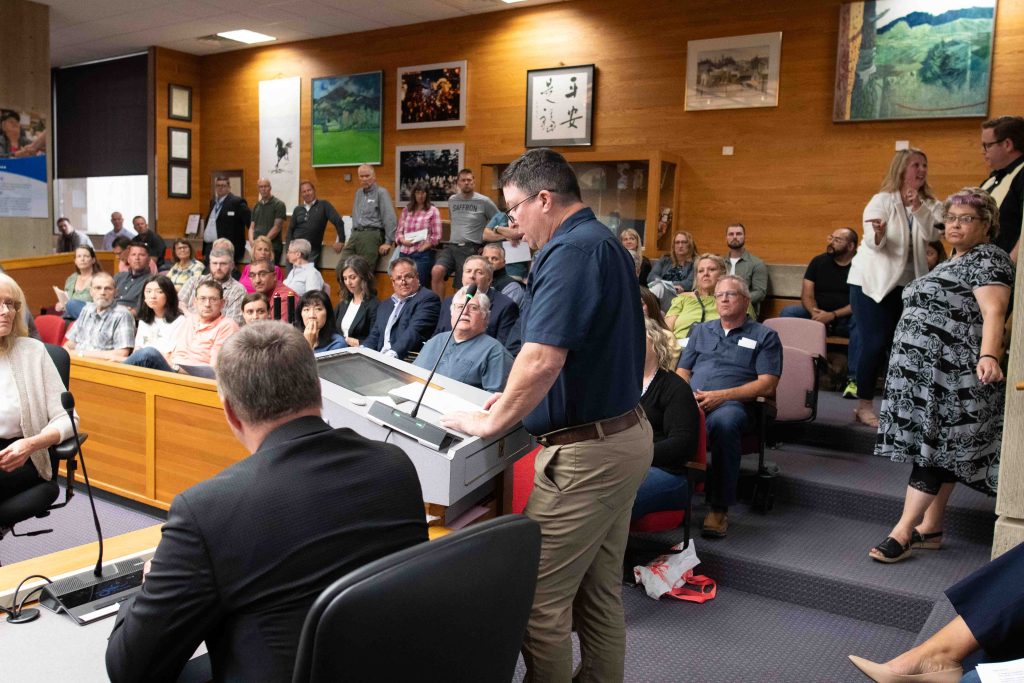
Business owners and groups said the new tax would make it more challenging to attract workers and businesses to Salem.
SAIF, Oregon’s state-chartered worker compensation insurance company, and Salem Electric, the electric cooperative powering much of west Salem, submitted letters opposed. Business owners including Rich Duncan of Rich Duncan Construction and John Miller of Courthouse Club Fitness testified against the tax.
“A tax of this nature would also disincentivize new business growth or further business investment in the community, which could lead to economic stagnation in the region,” said a letter submitted by the Marion County Board of Commissioners.
The Polk County Board of Commissioners also submitted testimony in opposition.
“We believe that it is the right of the people being taxed to have a voice and representation in the process of those taxing decisions. This payroll tax plan not only denies the right to have a voice through the ballot box but substantially impacts people that are not residents of Salem and have no rights under representation by Salem government,” the commissioners wrote.
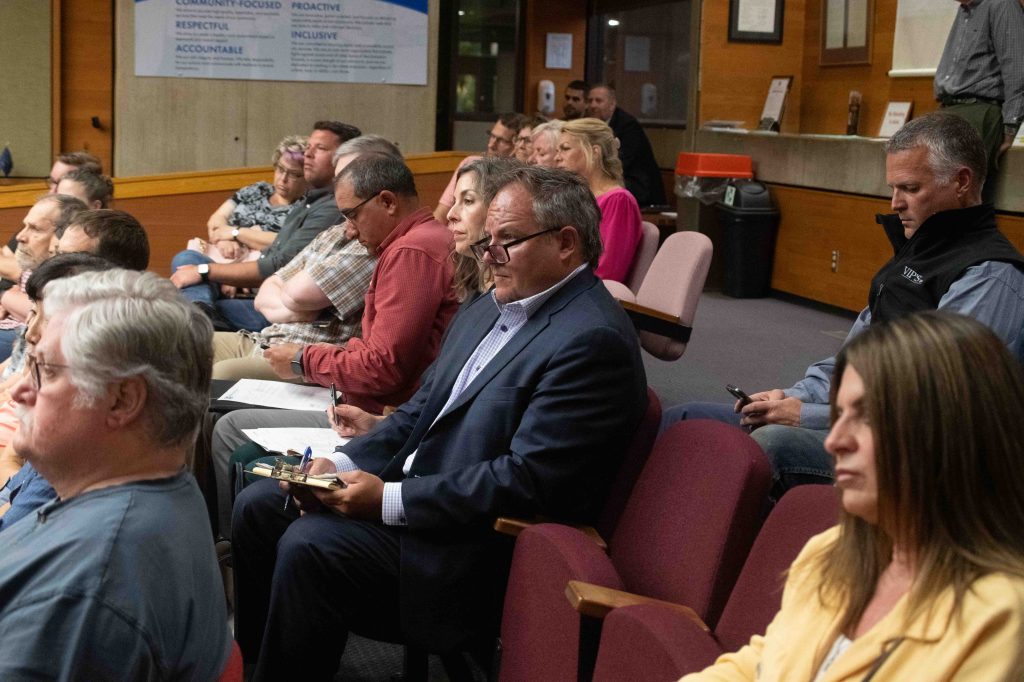
Some said administering the tax would require employers to track how often hybrid workers are physically in a Salem office.
“With the shift to remote work, the tracking and reporting of time worked in city limits across all of Oregon is not easily accomplished,” wrote Lara Milton.
The details of the tax’s implementation remain to be worked out in a rulemaking process which city leaders said would involve outreach to affected businesses.
Julie Hoy focused on implementation challenges, asking city staff several times about how the tax would work for the restaurant she owns, Geppetto’s, which sits just outside city limits.
“If a delivery driver brings a pizza into the city of Salem address, the tip would have to be taxed. But if they deliver that pizza …to a county property, the tip would not be subject to a tax?” Julie Hoy asked City Attorney Dan Atchison.
“I don’t understand the question,” Atchison responded.
“I don’t understand the tax,” Hoy retorted, drawing laughs from the audience.
Councilors said money needed for core services
The few supporters of the tax included DJ Vincent, founding pastor of Church at the Park, which runs micro shelter sites under contract with the city.
Vincent said the sites his organization runs are working at getting people into more stable housing or needed drug treatment and have a waitlist of 400 people.
“I invite you tonight to imagine the Salem that you desire to live in and create, and also to imagine what happens if you say no and what the consequences are,” he said.
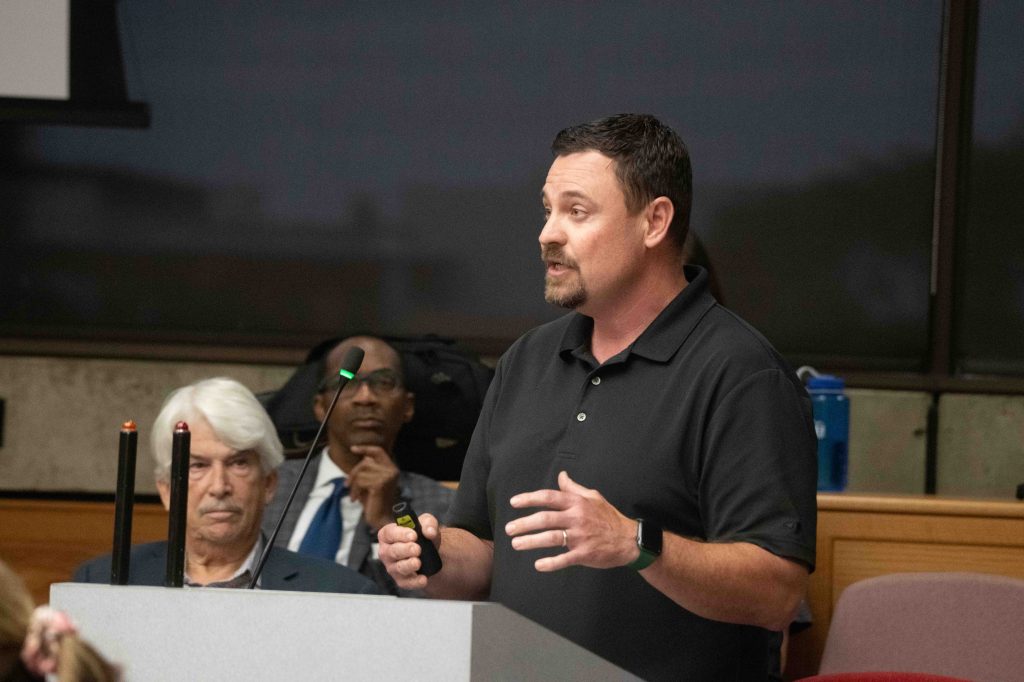
Several city residents said they saw the need for better public safety and wanted police and fire well-funded.
“If I need an ambulance, I would rather it be funded than not,” said Marissa Theve, who lives in the Grant neighborhood.
Many who opposed the tax urged the city to cut other services and live within its budget rather than threatening cuts to police and fire. Police and fire account for a majority of the city’s general fund.
Mayor Chris Hoy quizzed Josh Eggleston, the city’s chief financial officer, asking what would happen if the city made cuts to parks, the library and Center 50+.
“You could eliminate those services and still not reach the target that we need to hit,” Eggleston said.
With the ordinance passed, Eggleston said city employees will first hire staff and get a software platform to implement the tax, then begin writing more detailed rules.
Contact reporter Rachel Alexander: [email protected] or 503-575-1241.
SUPPORT OUR WORK – We depend on subscribers for resources to report on Salem with care and depth, fairness and accuracy. Subscribe today to get our daily newsletters and more. Click I want to subscribe!

Rachel Alexander is Salem Reporter’s managing editor. She joined Salem Reporter when it was founded in 2018 and covers city news, education, nonprofits and a little bit of everything else. She’s been a journalist in Oregon and Washington for a decade. Outside of work, she’s a skater and board member with Salem’s Cherry City Roller Derby and can often be found with her nose buried in a book.

